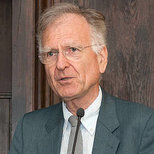EU centralisation threatens freedom and democracy
SUGGESTED



There is also a self-selection process going on. “Euromantics” are more likely to join EU institutions than “eurosceptics”. Politicians, civil servants and judges focus on the institutions and policies which they like.
Accordingly, comparative opinion polls among Commission officials, euro-parliamentarians, other EU policymakers and the general public show that the former prefer much more European centralisation than the latter. The European Court of Justice, like most constitutional courts, is a motor of political unification as well.
Particular institutional features make it difficult to keep these biased preferences in check. The Commission possesses the monopoly of legislative initiative, and it is extremely difficult to override the decisions of the Court.
The result is a centralising dynamic which threatens both freedom and democracy. By raising the cost of exit, it gives the government more power over the citizen, and by restricting the scope for comparing governments, it weakens democratic control.
The Treaty of Lisbon does not remedy these defects. On the contrary, by lowering the majority requirements in the Council of Ministers and by extending the general empowering clause beyond recognition, it will reinforce the centralising dynamic more than any previous treaty amendment has done. Many regulations which have been vetoed by blocking minorities in the past will now go through.
Reform is therefore urgently needed. The Council and the national parliaments should be strengthened, and new institutions added – a second chamber of parliament and another court – which are closer to the preferences of the people. The Commission ought to become a normal civil service. And since even national parliamentarians are biased in favour of EU centralisation, popular referenda must also play a key role in blocking ever-closer union.
Professor Roland Vaubel is author of The European Institutions as an Interest Group: The Dynamics of Ever-Closer Union, published this week by the IEA.




